The Saturday Brunch: a figurative flat white or fizzy to start your weekend

Soon after I moved to Basel, a German friend in Hong Kong reminded me that we had had a long discussion about moving to Switzerland.
When I announced our arrival in Basel on January 1, 2021 (the first official day of Brexit, by the way, and smack at the start of some COVID variant…both of which made it slightly difficult to even get on the plane after our first flight was cancelled; my husband says I was a ‘perfect American’ that day – feigning confidence in our right to be on the plane that eventually took us to our two week quarantine)…anyway, when I announced our arrival on social media, the friend in Hong Kong asked me if I remembered saying I would never move to Switzerland…because it is so boring!
I can’t say I remember the conversation, but said friend was someone I probably saw 89% of the time out in the nightlife…so I’m not exactly sure either of us could recreate our thoughts verbatim. No matter, I wouldn’t argue with the fact that I probably made that statement. At another time in the world (pre-pandemic, pre-China clampdown in Hong Kong) and time in my life (pre-motherhood, unrelatedly pro-climbing-the-career-ladder), Switzerland did not interest me, despite the gruyere cheese and steep, snowy mountains.
I also really didn’t know what living in Switzerland, and especially Basel, would be like. As we were in quarantine with only the promise of lockdown to get out to, the friend’s words terrified me. And I figured that because he was German, he must know what he was talking about. Scheisse. [Shit.]
We ended up here by accident. I won’t go into it all, but after a botched move to Kuwait from Vienna due to the pandemic and difficulty finding the right fit in the UK despite a lovely six month stay in Bexhill-on-Sea in a friend-of-my-brother-in-law’s bungalow, we suddenly landed a great gig in Basel.
People ask: “What’s it like?” all the time. For months, at the start, I avoided answering. Nothing was open! Nobody was (officially) allowed to interact! So although I found it all really beautiful, I knew that I had a very tiny understanding of the place. What’s more: the borders were essentially closed. When you can see Germany from your house and easily walk or cycle to France, this changes everything.
But the fear that we had been right all those years back in Hong Kong was swiftly thrown away as the city thawed from the pandemic and we slowly, slowly learned what it meant to live in this quirky Swiss city.
Obviously, I’m not going to tell you everything about Basel! If you want to know more about its history, look here for a timeline and here for an overview. And here’s a short impression piece I published on Medium in March.
And Swiss life takes a while to figure out. A year and a half in, I couldn’t tell you everything about Basel if I tried. It took me a few months just to understand the trash and recycling process. I carry my recycling to three different places and pay 3CHF a bag for our trash. You know who’s really rich because they put their bags outside before they’re exploding. But who am I kidding? I still don’t understand half of the recycling rules.
Most things are like this. There are a lot of rules here, but most of them make sense, or at least aren’t worth fighting. Noon until one o’clock is quiet time for lunch. No vacuuming or washing clothes on Sundays. No flushing your toilet after ten o’clock. Don’t talk about the weather. Say, “Grüezi'“ as a greeting instead of the German and Austrian forms of hello to show you are (at least somewhat) local. As they say, if you’re willing to play by their rules, you get to join the club.
At the border(s)
We live on the border. If I walk ten minutes down to the river, I can see Germany just across and to the East as well as France to the west. I can take a tram or my bike or even walk over these open borders. I guess I could swim over as well.
But they weren’t open when we first arrived. COVID made Basel into a very different place, like other places, but the ramifications of the border closing went much deeper than having to make due with only Swiss groceries (which are really nice, but limited and about twice as expensive). This was especially true for people who worked or went to school over the border, one way or the other. But it was also something of the feeling of the space; with the closures literally within sight, one felt cut-off, even more isolated than a ‘normal’ lockdown might be. One felt that the borders Europe had so carefully worked to take down were suddenly being built back up, coinciding with some nationalist movements around the world and pre-dating the war in Ukraine by a year.
Opening borders was a mindset. We didn’t know what we were missing. It’s not just an economically favorable dynamic. There are different kinds of food, architecture, museums, fashion trends, and languages spoken. With the opening, people could mix freely again. A vibrancy returned to the streets that everyone kept telling me had been there before.
I remember the first time passing through the French border by foot. We brought the buggy for our son. Passports and vaccine cards to hand, and our masks on our wrists, unsure what the etiquette would be once we crossed the line. We wondered what we would have to do or to prove to cross this recently closed space. The two national flags greeted us there, but no patrol. Perhaps they were hidden inside somewhere. We walked free and in a full realization of the Europe project — permeable internationality. Suddenly the people around us spoke French. They wore scarves and there were far fewer Birkenstocks. We ate croissants and imagined life in St. Louis.
Upon return, the buggy was filled with roquefort, fresh fish, baguettes, and Médoc wine. We slipped seamlessly back into Switzerland, changed through the process into creatures of privilege. The world was ours, was open to us.
Languages
One of the things that makes Basel less open to me is the language. Honestly, English is everywhere. And if I offer someone English or French, I’m bound to get at least a little of one or the other (I’ve got this phrase down in German: Ich spreche nur ein beisschen Deutsch. Sprechen Sie Englisch oder Französisch?). We also hear a lot of Italian and Spanish. It is an international city, thanks to big Pharma and the borders and the nature of Switzerland’s multilingualism.
But even German doesn’t get you a ticket in. Swiss German is remarkably different than High German. Apparently much more so than the British and American we speak in our home; although I do need to put on subtitles for the Scottish detective show Shetland. There are different Germans in Austria as well, which made my feeble attempts difficult when the Viennese had their own way of saying things. When you took a German class there, it was in High German…the same is true here. In schools, children speak the local dialect until kindergarten and then switch to Germany-German (officially, at least).
We see this everywhere, don’t we? It makes it rather complicated as an immigrant, although I’m not suggesting it needs to change. I get it; the language is a part of their identity. It’s sound is more closely linked to the undulating mountains and the nearby French and Italian…more musical and charming.
But I will only ever learn a few words of Swiss; I know this. My German class here and the apps I use are, of course, the standard variety. Just like the type of French I learned. And the Italian. And Putonghua. As much as I love the nuances of languages, there’s practicality that let’s us communicate with the most of amount of people (and texts) who speak another language.
Additionally, you must learn German for the purposes of immigration. I had a free course upon arrival; a voucher is given to new immigrants in the city of Basel (Basel Stadt). It was motivating to feel that we were being supported in this endeavor. If nothing else motivates me to continue my German currently progressing (albeit quite slowly) on DuoLingo, it’ll be the promise of a citizenship should we stay for 10 years. Since Brexit, marrying a British man has done little for my passport status ‘on the continent’…so if we like it, and I can figure out most of the umlauts (help!) and crazy long words (help!!!!!!), why not? Warum nicht?
Feeling of the city
So what about my naive comment somewhere on the partying concrete steps of Hong Kong? Is Basel boring?
The short answer is: no. The longer answer is that, of course, it depends on who you are and what you want from life (at this time). Maybe I would’ve hated it here in 2014 or whenever it was that I made these comments. Because of the cost of living, there aren’t many great restaurants and drinking cocktails is super pricey. Does this color the nightlife? Probably. And many parts of the city, including where I live - just a ten minute walk to the center - decidedly look like some kind of localized suburbia (i.e. GREEN, but also, concededly, boring and squeaky quiet after dark).
Because I am married with a three-year-old, I probably live in a different space of Basel than single thirty-year-olds, even if I do go out on my own from time to time. I also happen to love art, old city streets, proximity to ski resorts, multilingual communities, festivals, and having a big shared garden (yard for the Americans) that I can enjoy without taking care of myself but have the possibility of using for imaginary vegetables I want to hypothetically grow (not gonna happen, but I do keep little roses on our balcony). I love being able to cycle anywhere in the city, even if I am still deathly afraid of a couple of intersections with loads of tram tracks. I love that it’s a safe, multi-cultural environment for my son.
Bebbi (people from Basel, also the name of the trash bags - Bebbi Sagg) are not boring. There are several in our apartment building, and they are fun and quirky! They even - shhhhhh - break the rules sometimes! Bebbi do weird things like swim in the public fountains. It’s kind of gross, but I like that they do it. They also float with ‘fish’ that hold their clothes down the Rhine. The bag is called a Wickelfisch. Their playgrounds are weird, too. Not always practical, but artsy. Steam punk designs or huge wooden pigs; gigantic dinosaurs and climbing walls made from recycled playground equipment.
Festivals

You could call the festivals here a bit weird as well, or you could just call them a good time. These are the four main ones, but there are other random celebrations with live music in the streets or cultural conferences at the university or sport-related parties, often connected to FC Basel.
Herbstmesse
For two weeks around Halloween time is the annual Herbstmesse, or Autumn Fair, in Basel. You can read about the history of the fair dating back to 1471 here. It is Switzerland’s oldest and largest fair. There are rides, food, music, and generally a party feeling in the streets.
Christmas Market
The Basel Christmas Market likewise spans over different areas of the city. It is not unlike other markets in Switzerland, Austria, Germany, Hungary, and France at this time, but some have named it the top market to visit, or in this case the second and here number 14. In any case, it’s not bad, and there are a bunch of others in the general region if you want to make a market hopping trip like my friend living in Saudi Arabia plans to do this year. (I’m supposed to convince her husband it’s worth it…if you like Glühwein and wintry handmade gifts, then it’s top.)
Fasnacht
Basel’s version of Carnival is unique. With floats and parades at dawn and a long history of festivities and artistry, it has become part of the UNESCO cultural heritage list.
This is Basel tells us of its history:
Like with most carnival customs, the roots of the Basel Fasnacht trace back to ancient Celtic and Germanic origins and practices relating to ancestor worship, fertility rites, and the expulsion of winter. Later it was also influenced by such events as medieval jousts, military musters organized by the city’s guilds, and religious festivals before Lent. When, during the age of Reformation, merrymaking and feasting were increasingly restricted, even banned at times, the Basel Fasnacht gradually developed into a display of resistance against the city’s authorities.
Since then, the traditions are steeped in political satire and local dramatizations in pubs in addition to dressing up and parading with music. I would say the tone feels a little bit frightening as an outsider! But maybe this is part of its appeal…
Art Basel
I started going to Art Basel while I lived in Hong Kong (the HK version, I mean), and for a while it was the only thing I knew about this city. In July, I wrote about the experience of attending this year’s fair.
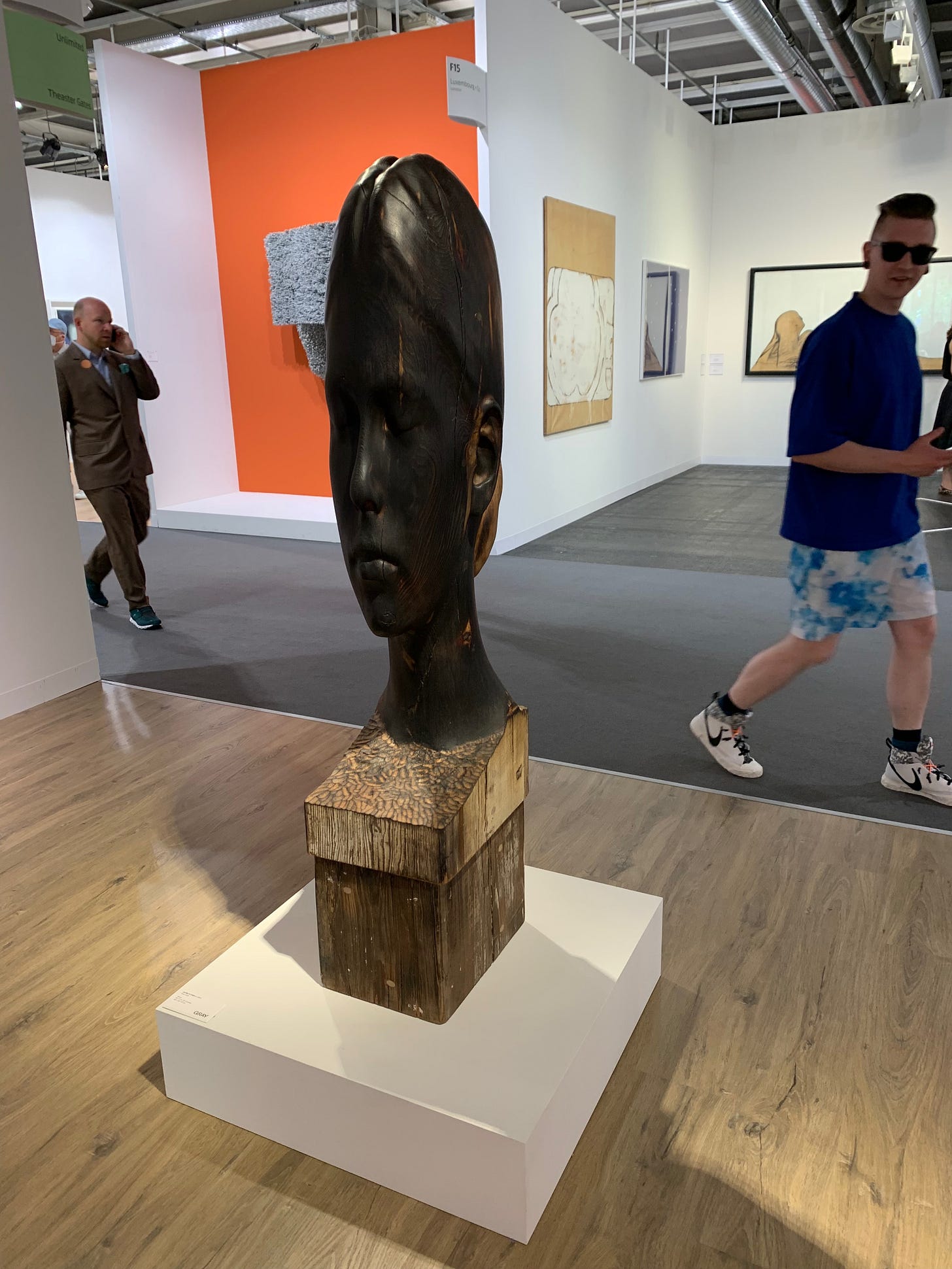
The fair is the biggest and most influential international art fair and was originally put on by the people behind Fondation Beyeler in 1970 (pictured below). Due to the history and interest in art (as well as the money), there are loads of great shows throughout the year at the city’s many museums and galleries.
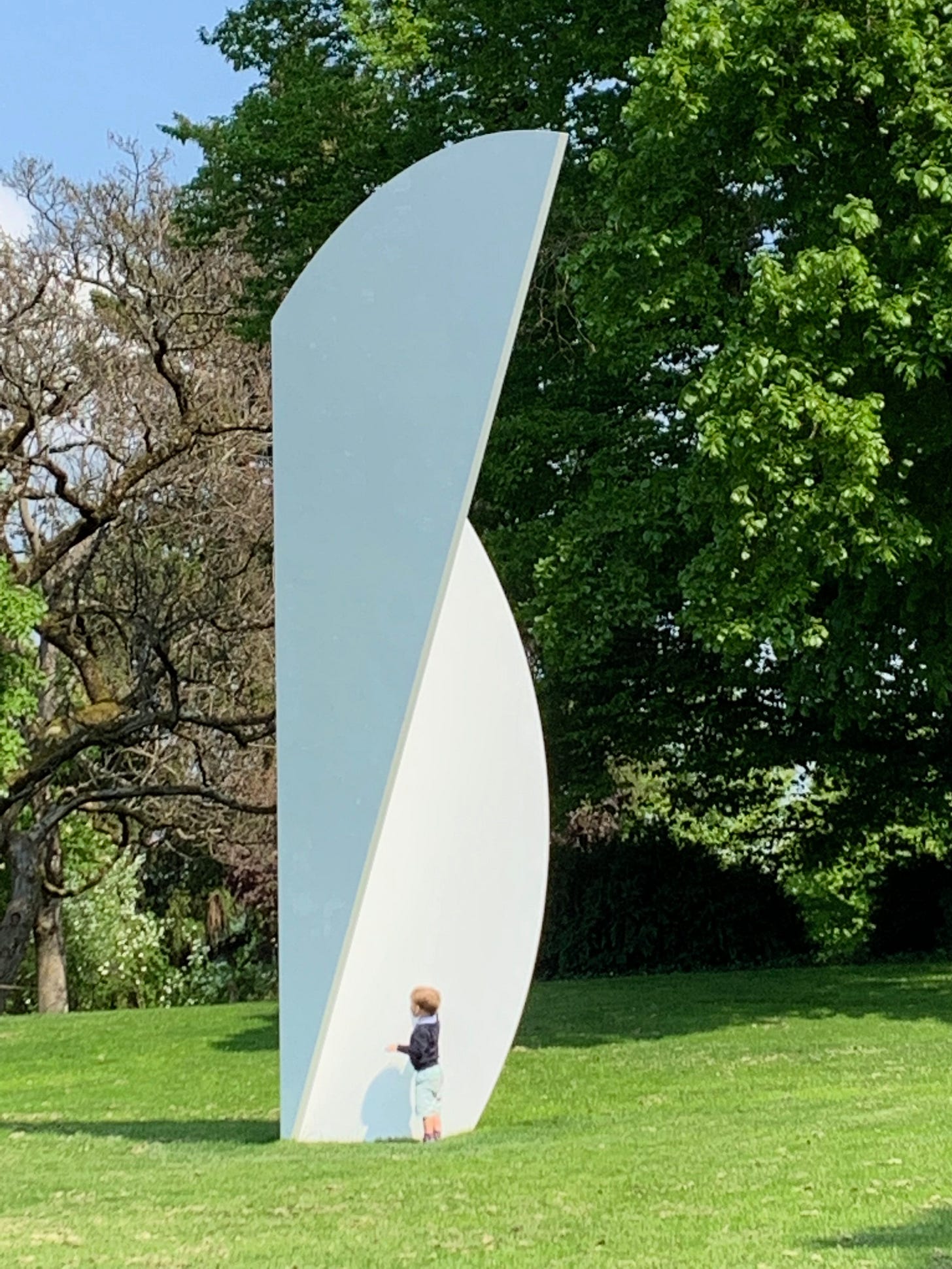
The Swiss way of life
Overall, I could use a bit more snow in the city and prefer not to go all the way to Zurich for the big gigs. But, hey, the cafes are divine.
So, yes, I’m enjoying being part of the club despite the costs of groceries and health insurance and the fact that my German is coming along remarkably slowly. I’m enjoying taking the fancy, efficient trains to explore the country. I’m immersing myself in the eco and eat-local way of life. And I’m finding my inspiration from different kinds of buzz.
Let us know what you think about Switzerland or how it compares to where you live! See you on the slopes or at Art Basel 2023?
Each morning, The Sample sends you one article from a random blog or newsletter that matches up with your interests. When you get one you like, you can subscribe to the writer with one click. Sign up here.




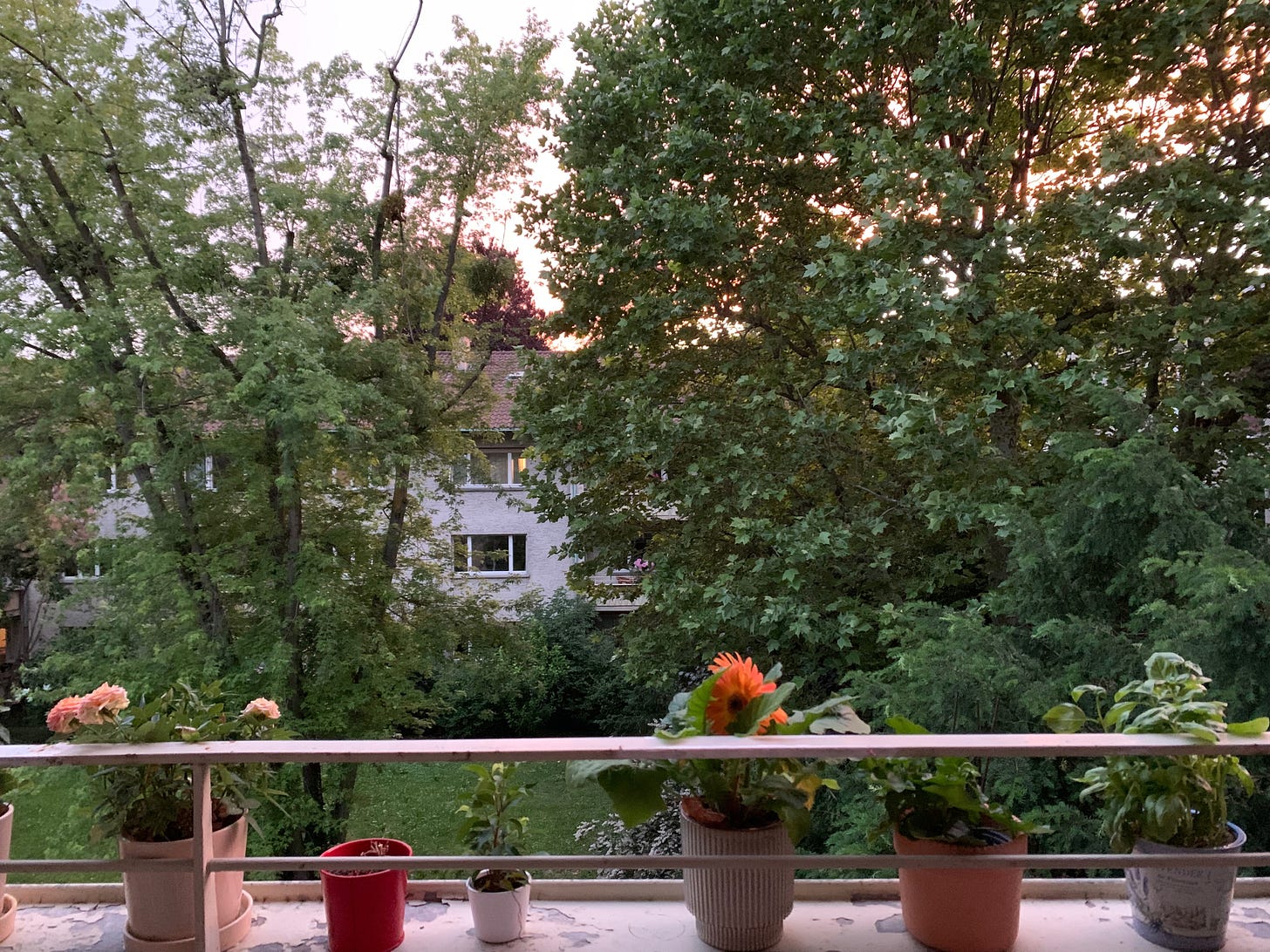
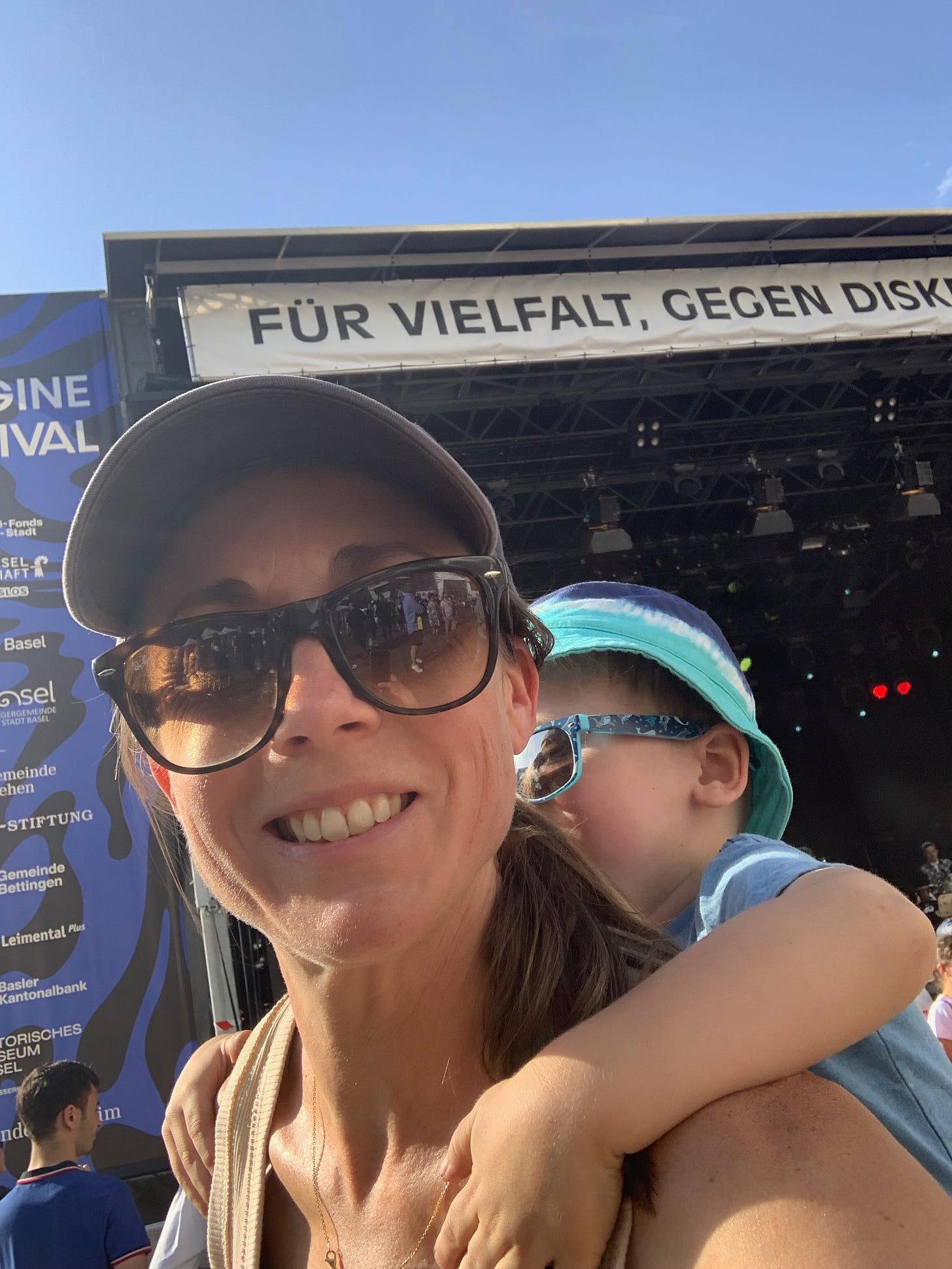
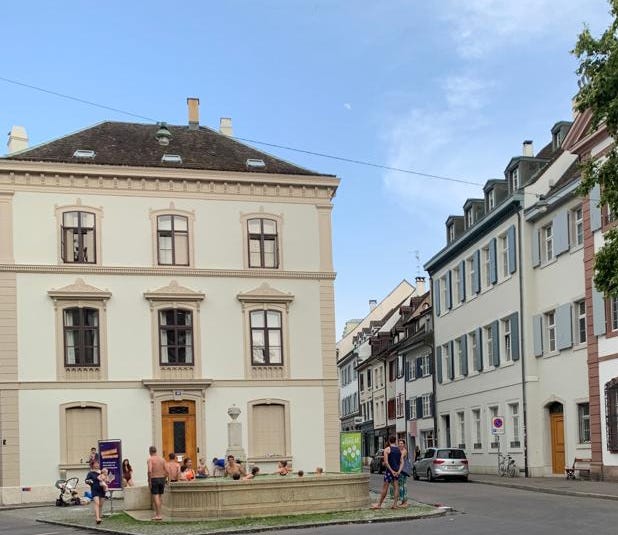


Thanks for this very interesting piece.
While I'm from Northern Italy, I've only been to Switzerland once, in 1989. A few days in Lucerne (lovely), one afternoon in Basel, and two days in Maienfeld (my then-girlfriend wanted to see Heidi's house...).
We Italians have a rather complicated relationship with Switzerland. The stereotype goes like this: beautiful nature, boring culture, forget the people. The dislike works both ways, mind you. After all, rule-observing Swiss people and rule-bending Italians can hardly see eye to eye.
There's also the problem with immigration. Many Italians (even some of my relatives) have lived and worked in Switzerland through the years and have experienced a good deal of discrimination.
But I love cheese, so there's still hope...
Thanks for this remarkably in-depth portrait of Basel. Seems like it has a boat-load of quirks.